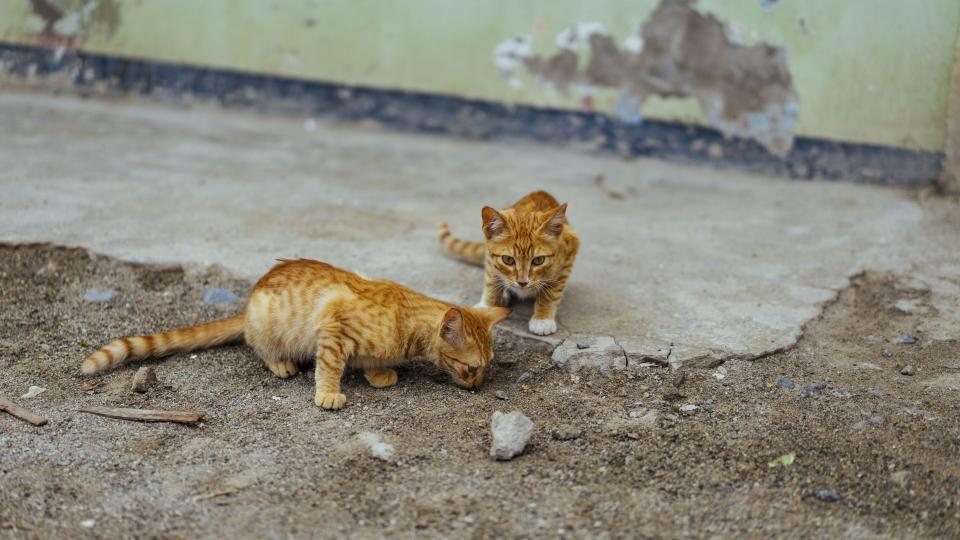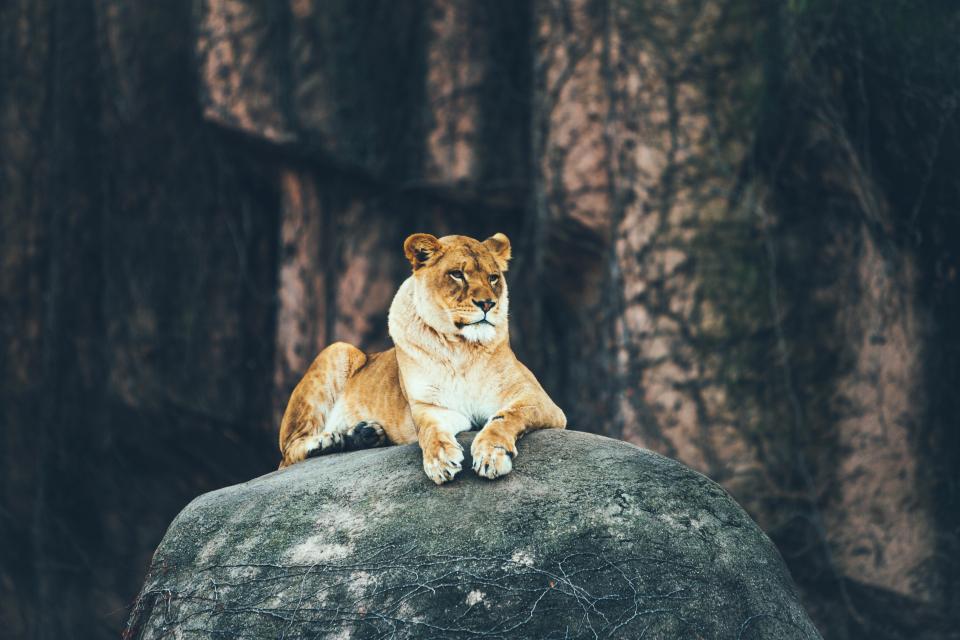This in-depth guide explores the fascinating world of feline sleep patterns, debunking common misconceptions and providing a comprehensive understanding of why cats sleep the way they do. We'll delve into their evolutionary history, natural instincts, and the impact of domestication on their sleep habits. Discover the science behind cat sleep, learn how to identify sleep issues, and find practical tips for promoting restful sleep in your furry companion.
Part 1: Unveiling the Truth About Cat Sleep

1.1 Deconstructing the Nocturnal Myth
While often associated with nocturnal behaviour, cats are more accurately described as crepuscular. This means they are most active during the twilight hours, both at dawn and dusk. This natural inclination is deeply rooted in their evolutionary history as predators, allowing them to hunt when their prey is most vulnerable.
1.2 The Science of Cat Sleep
Cats experience multiple sleep cycles throughout the day, with periods of deep sleep interspersed with lighter stages of rest. Their sleep patterns are influenced by a variety of factors, including age, breed, and environmental conditions.
1.3 Why Do Cats Sleep So Much?
The amount of time cats spend sleeping is often a source of amusement and curiosity. But the reason behind their seemingly excessive sleep is rooted in their evolutionary adaptation as predators. Sleeping allows them to conserve energy for those crucial moments of intense activity during hunting. It also plays a vital role in physical restoration, mental recuperation, and the processing of information.
Part 2: The Evolutionary Origins of Cat Sleep

2.1 The Hunter's Instinct
Cats are natural predators, and their crepuscular behaviour is a direct consequence of their evolutionary adaptation to hunting. They have evolved to be most active at dawn and dusk, when their prey is most vulnerable.
2.2 The Role of Light and Darkness
Cats are highly sensitive to changes in light levels, particularly at dawn and dusk. The decrease in light triggers an increase in their activity, as their instincts tell them it's time to hunt.
2.3 The Impact of Domestication
Domestication has undeniably altered cat sleep patterns, but the underlying need for rest remains constant. While they may not hunt as frequently as their wild ancestors, their bodies and minds still require regular sleep to function optimally.
Part 3: Delving into the Stages of Cat Sleep
3.1 Rapid Eye Movement (REM) Sleep
During REM sleep, cats experience rapid eye movements, twitching whiskers, and muscle paralysis. This stage is associated with dreaming and is crucial for memory consolidation and emotional processing.
3.2 Non-REM Sleep
Non-REM sleep comprises several stages, transitioning from light sleep to deep sleep. This stage is characterized by slower breathing, reduced heart rate, and muscle relaxation. It's essential for physical restoration, allowing the body to repair tissues, rebuild energy reserves, and release growth hormones.
Part 4: Exploring the Factors that Influence Cat Sleep
4.1 Age and Breed
Kittens typically sleep for extended periods, requiring up to 20 hours of sleep per day. As they mature, their sleep duration gradually decreases. Certain breeds, such as Siamese cats, tend to be more active and less prone to extended sleep than others, like Persians.
4.2 Environmental Conditions
Environmental factors play a significant role in cat sleep patterns. Cats are sensitive to temperature fluctuations and may sleep more in extreme heat or cold. They also prefer a quiet and dimly lit space for optimal sleep.
4.3 Health and Medical Conditions
Changes in a cat's sleep patterns, such as increased daytime sleepiness or restlessness at night, could indicate an underlying medical condition. It's important to consult with a veterinarian if you notice any concerning sleep changes.
Part 5: Identifying and Addressing Sleep Problems in Cats
5.1 Recognizing Sleep Issues
Significant changes in a cat's sleep habits can be a sign of a problem. Look for:
Increased daytime sleepiness
Restlessness at night
Changes in sleep duration
Changes in vocalization, such as excessive meowing
Aggression or anxiety
Changes in appetite
5.2 Seeking Professional Guidance
If you observe any concerning sleep changes in your cat, it's essential to consult with a veterinarian to rule out any underlying medical conditions. They can perform a thorough examination and recommend appropriate treatment options.
Part 6: Tips for Promoting Restful Sleep in Cats
6.1 Creating a Sleep-Friendly Environment
Quiet and Dark Sleep Area: Provide a quiet and dark space for sleep, away from any disturbances.
Comfortable Bedding: A soft and comfortable bed will encourage cats to spend more time sleeping and resting.
6.2 Establishing a Consistent Routine
Regular Feeding Schedule: Feeding cats on a regular schedule can help regulate their sleep patterns, minimizing the likelihood of them waking up hungry at night.
Playtime and Exercise: Engaging cats in playtime and exercise during the day can help tire them out, making them more likely to sleep soundly at night.
6.3 Addressing Environmental Triggers
Minimize Noise and Light: Excessive noise or light can disrupt cat sleep patterns. Create a calming and dimly lit environment for sleep.
Temperature Control: Cats are sensitive to temperature fluctuations. Ensure their sleeping area is a comfortable temperature, neither too hot nor too cold.
Part 7: FAQs
7.1 Are Cats Nocturnal or Diurnal?
While often mistaken as nocturnal, cats are actually crepuscular, meaning they are most active at dawn and dusk. Their sleep patterns are influenced by factors like age, breed, and environment.
7.2 Why Does My Cat Sleep So Much?
Cats sleep for extended periods for several reasons: energy conservation, physical restoration, mental recuperation, and instinctual behaviour.
7.3 Is It Normal for Cats to Sleep All Day?
While cats sleep for a significant portion of the day, excessive daytime sleepiness could indicate an underlying medical condition. If you notice a sudden change in your cat's sleep habits, it's best to consult with a veterinarian.
7.4 How Can I Encourage My Cat to Sleep at Night?
Providing a quiet, comfortable, and dark sleep area, establishing a regular routine, and engaging them in playtime and exercise during the day can all help encourage restful sleep in cats.
7.5 What Are the Signs of a Sleep-Deprived Cat?
Signs of a sleep-deprived cat may include: increased daytime sleepiness, restlessness at night, increased vocalization, aggression, anxiety, or changes in appetite.
7.6 When Should I Be Concerned About My Cat's Sleep Habits?
If you notice a significant change in your cat's sleep patterns, such as increased daytime sleepiness, restlessness at night, or other behavioural changes, it's best to consult with a veterinarian to rule out any underlying medical conditions.
Everyone is watching
-

Are Cat Ribs Flexible? Understanding Their Anatomy
CATS & KITTENSThis article delves into the fascinating world of feline anatomy, exploring the flexibility of cat ribs and ho...
-

Can Cats Eat Bananas? (Everything You Need to Know)
CATS & KITTENSThis article dives into the intriguing question of whether cats can safely enjoy the sweet, yellow fruit, bana...
-

Cat Lifespan: How Long Do Cats Live?
CATS & KITTENSThis comprehensive guide explores the factors influencing the lifespan of our feline companions, providing ins...
-

Can Cats Get COVID-19? What You Need to Know
CATS & KITTENSThis article will delve into the fascinating world of feline COVID-19 susceptibility. We'll explore whether ca...
-

Can Cats Eat Eggs? A Complete Guide to Egg Safety for Your Feline Friend
CATS & KITTENSWhen it comes to treating our furry companions, we all want to ensure we're doing what's best for them. Eggs...
